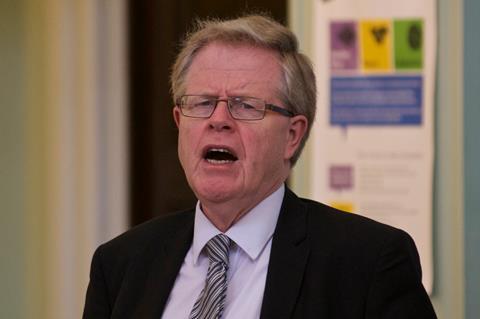In Richards & Anor v Speechly Bircham LLP & Anor (Consequential Matters) [2022] EWHC 1512 (Comm) HHJ Russen QC (sitting as a judge of the High Court) considered, inter alia, the most appropriate costs order to be imposed on the unsuccessful defendant law firm for refusing to consider and engage in mediation. He concluded, wrongly in my view, that a failure to mediate did not justify an order for costs on an indemnity basis.

Facts
The claimants, the founders of a communication company, had commenced proceedings against the defendants for providing negligent advice. The defendants lost at trial and were ordered to pay the claimants approximately £1.5m in damages.
The claimants made an application for costs on an indemnity basis on the grounds that the defendants had rejected four offers to mediate the dispute; three of those offers were made before proceedings were issued (that is, at the pre-action stage). The defendants’ response to the first offer was to say they did not consider that a mediation would be productive or cost effective at that stage. In their subsequent letter, the defendants said they would keep the merits of some form of ADR under review once full disclosure had been given.
The second offer of mediation was also rejected by the defendants. They argued that there was no point in engaging in mediation or ADR as the claim was doomed to fail. The third offer was met with the same response that there was no point in a mediation because the claim was entirely without merit. The defendants rejected the fourth offer on the basis that there was little point in having a mediation over an unmeritorious claim. The defendants also referred to the expense of a mediation and indicated that they would be prepared to have a short without prejudice call between solicitors to explain why a Part 36 offer of £500,000 made by them would not be increased.
Parties’ arguments
In support of their submissions, the claimants relied upon the decision of HHJ Waksman QC in Garritt-Critchley v Ronnan [2014] EWHC 1774 (Ch). In that case the judge granted the claimants’ application for indemnity costs based principally upon the defendants’ failure to engage in mediation. The defendants had resisted the claimants’ suggestion of mediation by saying that the positions of the parties were too far apart and, later, that they were confident of their position and did not consider there was any realistic prospect of the claimants succeeding.
The main issue in the case was the factual one of whether or not a binding agreement for the issue of shares had been reached. If the claimants had established one had been concluded, HHJ Waksman QC explained that there was a ‘sliding scale of compensatory award’ and that it had become apparent to him during the course of the trial that the range was ‘really very considerable indeed’. In support of his conclusion that the defendants’ ‘failure to engage in mediation or any other serious ADR was unreasonable’, the judge said their reasons for not doing so did not ‘stack up’.
In particular, the binary nature of the issue on liability, being one of fact, was one where both parties needed to engage in an analysis of the risk of their case not being accepted. The wide range of possible quantum scenarios was also an aspect which rendered the case suitable for mediation, as did a mediator’s ability to defuse the emotion in the case and any feelings of distrust between the parties (see also Costs & Funding Following the Civil Justice Reforms (8th edition, as contained in the 2022 White Book supplement).
The defendants in Speechly Bircham resisted an order for costs on the indemnity basis by arguing that their approach to mediation was not unreasonable (see Ramsey J in Northrop Grumman Mission Systems Europe Ltd v BAE Systems (Al Diriyah C4l) Ltd [2014] EWHC 3148 (TCC)), and that, following the Court of Appeal’s decision in Gore v Naheed [2017] EWCA Civ 369, an unreasonable refusal to mediate is only one factor of a party’s conduct to be taken into account when determining costs. They also relied on their Part 36 offer and the without prejudice discussions before trial between the parties’ respective lawyers.
Decision
HHJ Russen QC rejected the defendants’ argument that their approach to mediation was not unreasonable. He was persuaded by the claimants’ arguments that the defendants’ concern about the need for some disclosure to shed light on certain aspects of the case could have been explored in preparation for mediation or explored at a mediation. The judge explained that certain assumptions which the defendants’ submissions revealed had been made about the claimants’ motivations for and expectations of the litigation were just the kind of matters which a mediator would have explored. As was recognised by HHJ Waksman QC in Garritt-Critchley, most mediators are skilled in seeking to moderate the expectations of any party which may be based on matters collateral to the merits of its case. HHJ Russen QC also found that the timing of the defendants’ Part 36 offer (three months before the trial) signified ‘their general passivity in the ADR process over the period of almost three years since a mediation was first proposed’.
Although the judge found that the defendants’ failure to engage with the claimants’ proposals for a mediation was unreasonable, he held that this was only one aspect of the conduct to be considered in the exercise of the discretion under CPR 44.2. He explained that ‘the conduct of all the parties’ is just one factor among all the circumstances that are to be considered alongside the general rule favouring the overall successful party when it comes to exercising it. He also explained that a ‘failure’ to engage in a mediation clearly does not carry the defined costs consequences of an unaccepted but effective Part 36 offer. The uncertainty of outcome at any proposed mediation also means that the party who is suggesting unreasonableness on the part of the other cannot point to the result at trial and demonstrate that costs have been wasted through the mediation not having taken place. Consequently, HHJ Russen QC refused to order costs on the indemnity basis because to do so ‘would involve elevating that factor over others which weigh in their favour. Those others include them successfully resisting a significant part of a claim put at around £4.3m… and doing significantly better than either of the claimants’ Part 36 offers proposed (thereby avoiding the consequences of CPR 36.17(1)(b)). That is a very different outcome from the one in Garritt-Critchley’.
HHJ Russen QC concluded by saying that ‘in circumstances where neither side made a cost-effective Part 36 offer, the defendants’ unreasonable conduct in relation to mediation is in my judgement sufficiently marked by an order that they pay the claimants’ costs down to and including trial on the standard basis. That is an appropriate “sanction” for them not engaging in a process of ADR which might have curtailed those costs in a significantly lower sum at an earlier stage of the proceedings’.
The decision correctly found that the defendants’ failure to engage with mediation amounted to unreasonable litigation behaviour. However, the judge’s conclusion that an order for indemnity costs was not appropriate is questionable for a number of reasons. The ‘sanction’ – an order that the defendant pay the claimant’s costs to trial – was not an appropriate sanction which adequately penalised the defendants’ rejection of mediation on multiple occasions.

Although the judge correctly observed that a refusal to engage with ADR is one factor to be taken into account when assessing a party’s conduct for the purposes of costs, that factor, I would argue, becomes increasingly significant. It also carries more weight in the judicial assessment process when it is considered in light of the specific circumstances of the case (including the number of times offers to engage with ADR are rejected), the overriding objective and the duty of the parties to assist the court in furthering the overriding objective, and the ADR jurisprudence which, taken together, justifies a more severe costs sanction being ordered. The defendants refused four offers to engage with mediation and, in doing so, provided inadequate reasons which have been consistently rejected by the courts. This would be enough to exacerbate the severity of the defendants’ unreasonable behaviour under CPR 44.2 and CPR 44.4(3(a)(i) and (ii). The defendants’ failure to engage with mediation undermines the clear duty on the parties to actively assist the court in furthering the overriding objective (which encompasses ADR). A party’s rejection of multiple offers to engage with ADR should, in the judicial assessment process, increase the weight and significance of that factor under CPR 44.2.
Furthermore, leading authorities such as Dunnett v Railtrack [2002] EWCA Civ 303 and, more recently, Thakkar v Patel [2017] EWCA Civ 117, in which the defendants made settlement offers and unsuccessfully argued that this should have been taken into account under CPR 44.2, the Court of Appeal has adopted robust approaches (including making indemnity costs orders). This has included penalising a party for unreasonably refusing to engage with ADR despite settlement offers being made and despite without prejudice meetings having taken place (see also Dyson v Leeds City Council [2000] CP Rep 42 Ward LJ at [18]; Rowallan Group Ltd v Edgehill Portfolio No 1 [2007] EWHC 32 (Ch); Southwark LBC v IBM UK Ltd (Costs) [2011] EWHC 653 (TCC); and Epsom College v Pierse Constructing Southern Ltd (in Liquidation) (Costs) [2011] EWCA Civ 1449)).
In Thakkar, for example, Jackson LJ made clear the importance of the parties’ duty to engage with mediation. He warned: ‘The message which the court sends out in this case is that in a case where bilateral negotiations fail but mediation is obviously appropriate, it behoves both parties to get on with it. If one party frustrates the process by delaying and dragging its feet for no good reason, that will merit a costs sanction. In the present case, the costs sanction was severe, but not so severe that this court should intervene.’
The judge’s comparison between Part 36 offers and mediation is misconstrued. Part 36 is a self-contained costs regime which sets out detailed rules on, inter alia, the costs consequences of making and rejecting settlement offers and therefore provides some costs certainty. This cannot and should not be compared with ADR and, in particular, mediation which is not simply concerned with enabling the parties to reach a monetary settlement but also provides the parties (and the courts) with a number of practical benefits. These include the ability of the parties to narrow the issues in dispute which can subsequently assist judicial case management, or the opportunity for a party to extract an apology which cannot be ordered by the courts (see DSN v Blackpool Football Club Ltd [2020] EWHC 670 (QB); Wales (t/a Selective Investment Services) v CBRE Managed Services Ltd & Anor [2020] EWHC 1050 (Comm); and BXB v Watch Tower and Bible Tract Society of Pennsylvannia & Ors [2020] EWHC 656 (Admin)).
Finally, the judge’s conclusion creates an artificially high threshold before an indemnity costs order will be made and potentially restricts the courts’ wide discretion on costs.
Masood Ahmed is an associate professor at the University of Leicester and research fellow on the Vici Affordable Access to Justice project, Erasmus University, Netherlands































No comments yet